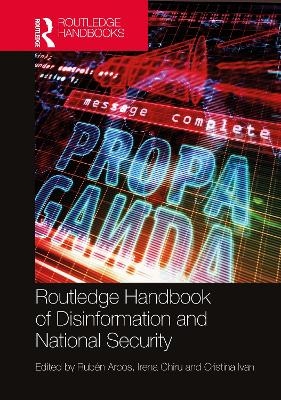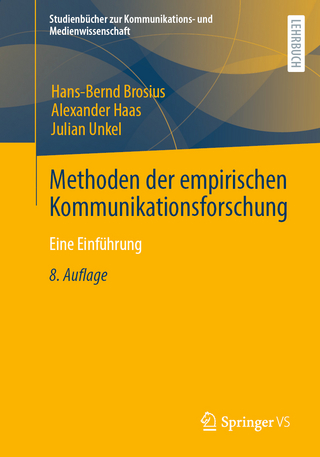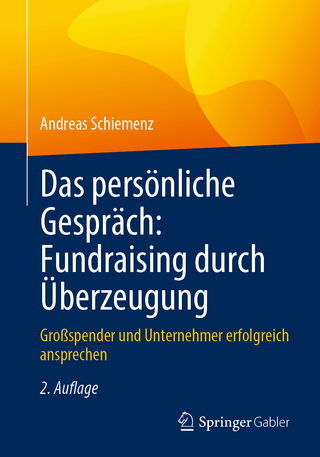
Routledge Handbook of Disinformation and National Security
Routledge (Verlag)
978-1-032-04050-9 (ISBN)
Disinformation used to propagate false, inexact or out of context information is today a frequently used tool of political manipulation and information warfare, both online and offline. This Handbook evidences a historical thread of continuing practices and modus operandi in overt state propaganda and covert information operations. Further, it attempts to unveil current methods used by propaganda actors, the inherent vulnerabilities they exploit in the fabric of democratic societies and, last but not least, to highlight current practices in countering disinformation and building resilient audiences.
The Handbook is divided into six thematic sections. The first part provides a set of theoretical approaches to hostile influencing, disinformation and covert information operations. The second part looks at disinformation and propaganda in historical perspective offering case study analysis of disinformation, and the third focuses on providing understanding of the contemporary challenges posed by disinformation and hostile influencing. The fourth part examines information and communication practices used for countering disinformation and building resilience. The fifth part analyses specific regional experiences in countering and deterring disinformation, as well as international policy responses from transnational institutions and security practitioners. Finally, the sixth part offers a practical toolkit for practitioners to counter disinformation and hostile influencing.
This handbook will be of much interest to students of national security, propaganda studies, media and communications studies, intelligence studies and International Relations in general.
Rubén Arcos is a senior lecturer in communication sciences at University Rey Juan Carlos (URJC) in Madrid, Spain, and a researcher of the Cyberimaginario research group. He is a cofounder and codirector of IntelHub—International Online Intelligence Hub. Irena Chiru is a professor of intelligence studies at ‘Mihai Viteazul’ National Intelligence Academy, Romania. She is a member of the editorial advisory board of the International Journal of Intelligence and Counterintelligence. Cristina Ivan is researcher at the National Institute for Intelligence Studies, "Mihai Viteazul" National Intelligence Academy in Romania. She holds a PhD in cultural studies.
Introduction Part I. Theoretical Perspectives: Concepts and Definitions 1. Hybrid Security Threats and the Information Domain: Concepts and Definitions 2. Deterrence by Denial and Resilience Building 3. Military Deception and Perception Management Part II. Historical Perspectives 4. Cold War Active Measures 5. Historical Disinformation Practices: Learning from the Russians 6. Influence Operations and the Role of Intelligence 7. Asymmetrical Conflict in the Information Domain: The Case of Russia Part III. Contemporary Challenges 8. Disinformation: The Jihadists’ New Religion 9. Digital Disinformation, Electoral Interference, and Systemic Distrust 10. A Perception Management Take on Propaganda as Political Warfare 11. The Use and Abuse of History by Russian Embassies on Twitter: The Case of the Baltic States 12. Using Mimetic and Rhetorical Theory to Critique a Disinformation Consensus: The Problem of "Personal Vigilance" 13. Deepfake Disinformation: How Digital Deception and Synthetic Media Threaten National Security 14. The Strategic Logic of Digital Disinformation: Offense, Defence and Deterrence in Information Warfare 15. Conspiracy Theories and Unfounded Rumours in Contemporary Democracies: Beyond Truth and Trust 16. Cognitive Warfare: Understanding the Threat Part IV. Countering Disinformation and Building Resilience 17. Journalistic Approaches to Information Sources, Fact-Checking, Verification and Detached Reporting 18. A National Security Perspective on Information Leaks 19. An Ethical Understanding of Military Strategic Communication, Public Relations, and Persuasion 20. Emotional Diplomacy in Times of Uncertainty and Disinformation 21. Open-Source Information for Intelligence Purposes: The Challenge of Disinformation 22. Protective Factors Against Disinformation Part V. General Trends and Regional Specificities in Countering Disinformation 23. The EU Approach to Combating Disinformation: Between Censorship and the "Market for Information" 24. The Strategic Security Environment and NATO’s Perspectives in Developing Effective Strategic Communications (2014-2022) 25. The Baltic Experience in Countering Contemporary Russian Disinformation 26. The Disinformation Threat: Lessons from the Chinese Experience 27. The Perils of Disinformation in Latin America Part VI: A Toolkit for Practitioners 28. The Use of Discourse Analysis in Propaganda Detection and Understanding 29. Anticipatory Approaches to Disinformation, Warning and Supporting Technologies 30. AI Technologies to Support Detection of Information Manipulation on Social Networks and Online Media: A Quick Overview 31. Wargaming Disinformation Campaigns Conclusions - Analysing and Assessing Disinformation and Hostile Influencing
| Erscheinungsdatum | 21.11.2023 |
|---|---|
| Zusatzinfo | 9 Tables, black and white; 15 Line drawings, black and white; 2 Halftones, black and white; 17 Illustrations, black and white |
| Verlagsort | London |
| Sprache | englisch |
| Maße | 174 x 246 mm |
| Gewicht | 1480 g |
| Themenwelt | Sozialwissenschaften ► Kommunikation / Medien ► Kommunikationswissenschaft |
| Sozialwissenschaften ► Kommunikation / Medien ► Medienwissenschaft | |
| Sozialwissenschaften ► Politik / Verwaltung ► Europäische / Internationale Politik | |
| ISBN-10 | 1-032-04050-5 / 1032040505 |
| ISBN-13 | 978-1-032-04050-9 / 9781032040509 |
| Zustand | Neuware |
| Haben Sie eine Frage zum Produkt? |
aus dem Bereich


